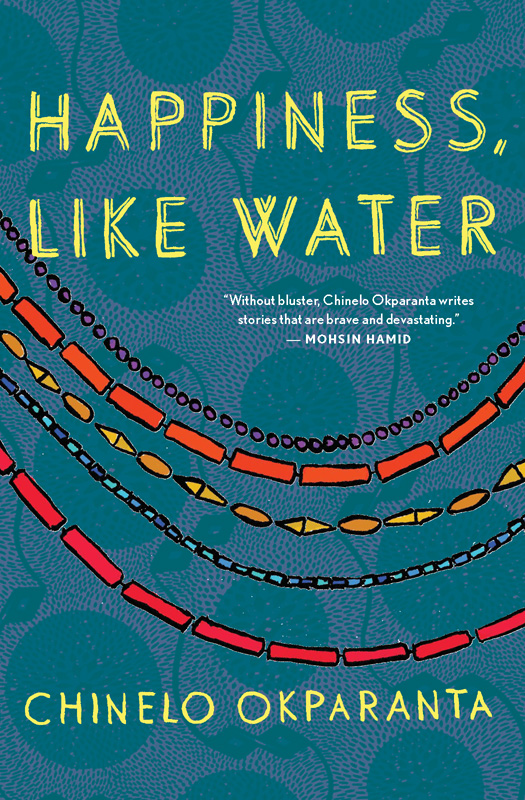
Happiness, Like Water
کتاب های مرتبط
- اطلاعات
- نقد و بررسی
- دیدگاه کاربران
نقد و بررسی

May 20, 2013
In this collection of 10 empathetic short stories, Okparanta chronicles life in her native Nigeria and the immigrant experience in America. Her characters mostly hail from Port Harcourt, the capital of Rivers State, where, in “On Ohaeto Street,” a woman revises her image of her wealthy husband after a violent burglary. “Story, Story!” features a childless teacher who slowly—and chillingly—reveals her real interest in the pregnant woman she befriends. In “America,” a female science teacher has an affair with another woman and faces a choice between two different ways of life. The later stories relocate to America, mainly Boston, where, in “Shelter,” a Nigerian woman trying to free herself and her daughter from the woman’s abusive husband runs into the indifference of local social workers. In “Designs,” a Nigerian student is torn between his childhood sweetheart and his American girlfriend. And in “Tumours and Butterflies,” a high school teacher is sucked back into her abusive father’s orbit after he’s diagnosed with thyroid cancer. Okparanta skillfully introduces readers to a new world held back by old-world traditions, but a sameness to her stories, which typically involve teachers, students, same-sex relationships, and abuse, makes the focus of this collection too constricted. Agent: Jin Auh, the Wylie Agency.

June 15, 2013
One of Granta's New Voices honorees, Okparanta debuts with ten pieces focusing on her native Nigeria. The book opens with "On Ohaeto Street." A mysterious narrator tells of young Chinwe marrying Eze but finds he treasures possessions more than a wife. "Wahala!" follows: Ezinne seeks help from a dibia, a folk healer, for her inability to conceive, her pain invisible to her husband and misunderstood by her mother. The haunting "Fairness" speaks of color and class, with a young girl, her mother entranced by Glamour and Elle, feeling "something like envy in me." Most affecting is "Runs Girl." A college student, a religious girl, meets a Yahoo Boy, one of the "ones who rolled into town in sleek cars and with pockets full of cash." Many of Okparanta's stories unfold amongst the Niger Delta's guava and plantain trees, where big oil employs and pollutes, amid flat-screens and BMWs and NEPA power failures leaving candles to hold back the night. In "America," a Port Harcourt teacher discovers her sexuality and then decides to follow her love to America. Later stories plumb the Nigerian-American immigrant experience. A daughter narrates "Shelter," following along as her Nigerian mother meets rejection at a Boston domestic abuse shelter because of visa issues. In "Tumours and Butterflies," Uchenna, disowned by her abusive father as she leaves for university, reluctantly comes home to assist her mother. Nigeria, the vibrancy of its heart, the soul of its people, is captured in these stories.
COPYRIGHT(2013) Kirkus Reviews, ALL RIGHTS RESERVED.

August 1, 2013
In her first collection of stories, Nigerian-born Okparanta focuses primarily on African women and their relationships with family, lovers, colleagues, and the community at large. Okparanta draws on her experience as a Jehovah's Witness growing up in Port Harcout and immigrating to the U.S. These are fierce, unflinching stories of the complicated knotting of close ties and the strange behaviors of language. In stories of hearsay and rumor, Okparanta portrays the ways language creeps around social circles and intrudes, distorts, and penetrates the heart of life. In Wahala!, after receiving questionable advice from a shaman, a husband and wife hear chillingly different intonations in each other's intimate exhalations. In Fairness, young girls overhear talk about using bleach to lighten skin color and experiment with the treatment to horrendous results. In other stories, Okparanta presents a picture of the U.S. as envisioned and talked about by Nigerians overseas. Named one of Granta's New Voices, Okparanta joins the good company of young writers like NoViolet Bulawayo (We Need New Names, 2013) and T'a Obreht (The Tiger's Wife, 2011).(Reprinted with permission of Booklist, copyright 2013, American Library Association.)

























دیدگاه کاربران